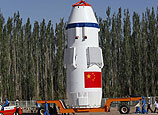
BEIJING, June 9 (Xinhua) -- The weekend summit between Chinese President Xi Jinping and his U.S. counterpart Barack Obama will cast positive influence on the advancement of bilateral ties and the development of the whole world, commented media and experts worldwide.
Li Jianqiang, associate professor of East Asian politics at University of Houston, said the unusually informal summit between the two heads of state marked the first step for the two nations to chart their course towards a new model of great power relations.
The relationship between China and the United States, the most important bilateral relationship in the world, wields global influence and bears significance beyond the bilateral scope, he said.
That is why China-U.S. relations are called the ballast for global stability and the propeller for world peace, he added.
Li Cheng, a senior fellow at the Brookings Institution, said the two leaders went into the summit with their eyes on three levels of objectives, which encompass concrete issues as the first, fostering personal relationship as the second, and strategic thinking the third.
For the strategic thinking, Li said, the two presidents discussed the new type of great power relations, which should be cooperative rather than confrontational.
Stephen A. Orlins, president of the National Committee on U.S.-China Relations, told Xinhua that the talks were conceptualized and implemented as "close to perfectly" as possible in today's world.
He also said their agreement on carbon emissions cooperation clearly signals to the world that China and the United States intend to jointly confront the real threats to the Earth.
"The U.S.-China relationship is better today than it was two days ago and world peace is more secure," he added.
John Frisbie, president of the U.S.-China Business Council (USCBC), said the two leaders have sent a message about the importance of the U.S.-China relationship by carving out an opportunity to meet earlier than expected in Rancho Mirage, California, and set the tone for engagement during the second term of the Obama administration.
Speaking of the upcoming U.S.-China Strategic and Economic Dialogue (S&ED) to be held in July in Washington, Frisbie said his organization hopes the discussions will lay a strong foundation for achieving concrete results at the S&ED meeting on "key economic and commercial issues" in the bilateral relationship.
Dr. Jose Luis Valdes, former director of the North America studies center at the National Autonomous University of Mexico, said the Xi-Obama talks have opened a new chapter of China-U.S. ties, and promoted their cooperation and understanding on major issues.
He added that it would be essential not only to the China-U.S. relationship, but also to the entire world, for the two powers to enhance their trust and cooperation.
Tim Summers, a senior consulting fellow at Britain's Chatham House, or the Royal Institute of International Affairs, said the talks allow in-depth discussions without trappings of a state visit, which has increased "the chances that the two leaders might form a close working relationship."
"The key question Presidents Xi and Obama need to address is whether they can accommodate each other's interests and ambitions," said Summers, adding that "whatever emerges in California, if mutual understanding can be developed, then the prospects of better bilateral relations and smoother global interactions will be improved."
Dr. Chheang Vannarith, executive director of the Cambodian Institute for Cooperation and Peace and lecturer of Asia-Pacific studies at the Leeds University in Britain, said that both China and United States are important global stakeholders in maintaining peace and stability.
He also noted that the two countries are increasingly interdependent for economic growth and sustainable development, and they both are key global economic engines, which need to grow together.
"The bilateral ties will continue to grow with more concrete action plans and coordinated works," he said. "Global peace and prosperity rely much on a sound and stable bilateral partnership between the two countries."
Monica Herz, an international relations professor at Brazil's Catholic University in Rio de Janeiro, said the fact that cooperation is greater than differences between China and the United States could be helpful to global economic revival and regional security.
Verner Worm, a professor with the Copenhagen Business School, described the meetings as "very important," saying the China-U.S. relationship is by far the most important bilateral relationship in today's world.
He also said it is hoped that the two presidents can promote peace and prosperity for the whole world.
Fakhry al-Tahtawi, a professor of political studies at Cairo University, said the building-up of a new model of great power relationship between China and the United States means that the two sides are equal in making rules and shaping bilateral ties.
He also said that there is no doubt that over the next 10 years Beijing and Washington will jointly handle many hot issues through the new type of relationship.
According to an AFP report on Saturday, the two presidents forged a rapport and policy understandings, if not breakthroughs, on issues concerning the Democratic People's Republic of Korea, climate change and cyber security.
The report also quoted U.S. National Security Adviser Tom Donilon as saying that the talks were "uniquely informal," "constructive," "wide-ranging," and "positive" for a vital great power relationship.
The Mainichi Shimbun, a Japanese daily, said in its editorial that the core of the new model of major power relations is to seek a dialogue mechanism to avert confrontation and promote cooperation.
The editorial added that it would be conducive to eliminating all destabilizing factors in Asia, including the nuclear issue on the Korean Peninsula.
Voice of Vietnam, the country's national radio broadcaster, said in a commentary posted on its website that the Xi-Obama meetings would help the two countries to promote mutual trust, narrow their differences, and further consolidate the China-U.S. relationship so as to make joint efforts in maintaining world peace and stability.



















![]()
